LESC at COP24: Accelerating Action to a Low-Carbon Future
This year’s LESC features distinguished panelists from government, academia, business, and civil society who will address the themes of energy and land use. Spotlight presentations will facilitate rich dialogue on what is still needed and how public-private partnerships can support the common objectives between nations, cities, business, and academia. The outcomes of this event will be submitted to the Marrakech Partnership for Global Climate Action.
The IPCC's Special Report on Global Warming of 1.5°C highlights that limiting warming to 1.5°C remains possible, but only if we urgently and rapidly transform all systems at an unprecedented scale. Net CO2 emissions need to be zero in 2050. In pursuit of this target, the energy system must transition away from fossil fuels – currently responsible for over 80% of primary energy demand – toward increasing shares of zero-carbon energy sources in all sectors. Given the scale of the challenge, all low-carbon solutions will be needed in this transformation. This session will present the decarbonization efforts already taking place in the power sector, and showcase how this can decarbonize the transport and buildings sector through electrification.
Registration: No registration is required. This event is open to all accredited attendees of COP24.
Agenda
10 Dec 3:30PMWelcome Keynotes and setting the scene
Dr. Han Huang, Vice President, Economic & Technology Research Institute, GEIDCO
Jeffrey Sachs, Director, UN Sustainable Development Solutions Network (Video conference)
10 Dec 3:50PMLaunch of WBCSD report: “New Energy Solutions for 1.5°C”
Maria Mendiluce, Managing Director, WBCSD
10 Dec 4:00PMThe role of decarbonized electricity in decarbonizing end use sectors
The decarbonization of the power sector will be a crucial enabler to the transition to low-carbon transport, buildings, and industry sectors via the increasing electrification of energy-end uses. The primary levers to decarbonizing the power sector are phasing out unabated fossil fuel-based generation and expanding zero-carbon generation. Scaling up of renewable-based electricity (RE) is critical, and the share of generation from variable renewable technologies in particular - solar and wind - must grow rapidly.
Elena Crete, Program Manager, UN Sustainable Development Solutions Network
Carlos Sallé, Vice-President of Energy Policies and Climate Change, Iberdrola
Pascal Chalvon-Demersay, Chief Sustainability and Energy Officer, Solvay
Xiaodong Wang, Senior Energy Specialist, The World Bank
10 Dec 4:45PMTransport: electrification of passenger transport and key enablers
Electrification of passenger mobility via the increasing deployment of battery electric vehicles (BEVs) will play an important role in reducing CO2 emissions from the transport sector. In addition to decarbonization targets, the electrification of passenger mobility in urban settings is driven by air quality concerns. The number of battery electric vehicles on the road have grown rapidly in 2018. The rapid growth in BEVs can be attributed to a large fall in battery prices combined with purchase incentives from governments. In addition, battery capacity improvements and infrastructure developments have also reduced range anxiety in drivers.
With growth in BEVs, smart charging will be necessary to manage the impact of BEVs on the power system, while also enabling them to play a complementary role in the energy transition by providing flexibility services to the grid. Through smart charging, the timing of BEV charging can be optimized to ensure a reasonable balance between power supply and demand, which reduces the need for additional generation capacity, increases the grid asset use factor and reduces the curtailment of renewable generation. Demand-side management via smart charging can be facilitated by dynamic tariffs such as time-of-use or real-time pricing, which will incentivize consumers to charge BEVs when prices are low. Furthermore, BEVs represent storage capacity that could be used to provide ancillary services to the power grid via vehicle-to-grid (V2G) solutions.
Rasmus Valanko, Director, Climate & Energy, WBCSD
Anirban Ghosh, CSO, Mahindra
Nicola Tagliafierro, Head of Sustainabile Product Development, Enel X
Yeom Tae-young, Mayor of Suwon, Republic of Korea, on behalf of ICLEI´s Ecomobility Alliance
10 Dec 5:30PMBuildings: electrification of buildings, digitalization, and smart cities
In the long-term, all buildings must be net zero-emissions buildings; the technologies needed to achieve this goal are available today. One of the key levers to decarbonizing the buildings sector is the electrification of space and water heating, which currently account for the majority of direct CO2 emissions from the sector. Electricity demand from the buildings sector will grow as a result of increasing electrification rates, and economic and population growth. To minimize load on the grid, electric devices across all end uses must be highly energy efficient.
The digitalization of household devices is one way to drive efficiency improvements. For example, digitalization increases the opportunities for device optimization by increasing awareness of energy consumption in real-time; and smart thermostats can use machine learning to automatically adjust room temperature in response to occupant behavior and input such as weather forecasts. In addition to efficiency improvements, demand response in the buildings sector enabled by digitalization will be important to managing load on the electricity system.
Wolfgang Teubner, Regional Director, ICLEI Europe
Gilles Vermot Desroches, CSO, Schneider Electric
Leszek Drogos, Director of Infrastructure Department, City of Warsaw, Poland
Meg Argyriou, Head of International Programs, ClimateWorks Australia
10 Dec 6:15PMConcluding Remarks
Bertrand Piccard, Co Founder and Chairman, Solar Impulse
Speakers
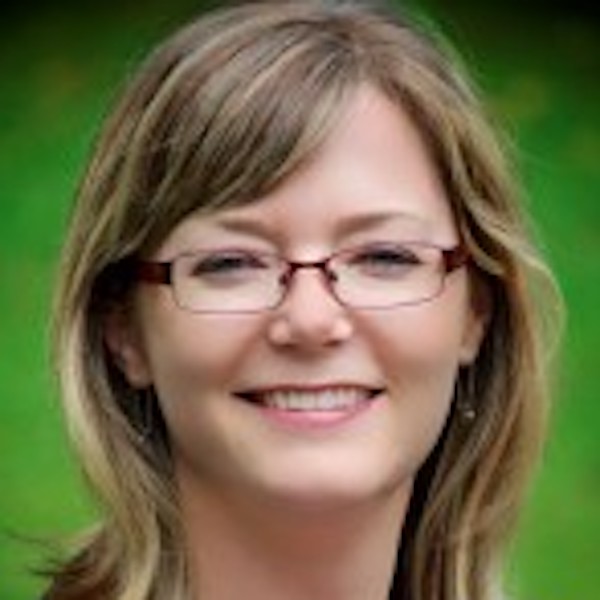 Head of International Programs, ClimateWorks Australia
Head of International Programs, ClimateWorks AustraliaMeg Argyriou Head of International Programs, ClimateWorks Australia
Meg leads ClimateWorks’ international work programs, with a focus on Southeast Asia and the Pacific Islands. She designed and leads the organisation’s new agenda-setting program, ‘Pathways to Prosperity: Achieving lowest emissions development and the SDGs’ and has published a number of articles and an issues paper focused on the nexus between climate mitigation and sustainable development.
Previously, Meg led ClimateWorks’ Engagement Team, where she provided strategic oversight for ClimateWorks’ stakeholder management, and led the organisation’s communication strategies to advance progress on climate change and catalyse tangible action by business and government. She also oversaw the philanthropic fundraising program, and led the development and launch of ‘Generation Yes’, an engagement and education program focused on galvanising public support for strong climate action.
Meg also led the development of a number of sub-national low carbon growth plans (Greater Geelong, Gippsland, Macquarie Park and City of Melbourne), and co-authored the reports, ‘Improving Australia’s Light Vehicle Fuel Efficiency’, ‘How to Make the Most of Demand Management’ and the ‘Impact of the Carbon Price Package’.
Prior to joining ClimateWorks, Meg worked in government, managing funding programs focused on capacity building. She has also worked for the International Energy Agency, supporting working parties focused on energy efficiency, renewables and clean technology transfer.
Meg holds an MBA with a specialisation in Environmental Sustainability from Deakin University and a Bachelor of Film and Television from the University of Melbourne. She is also an alumni of the Centre for Sustainability Leadership.
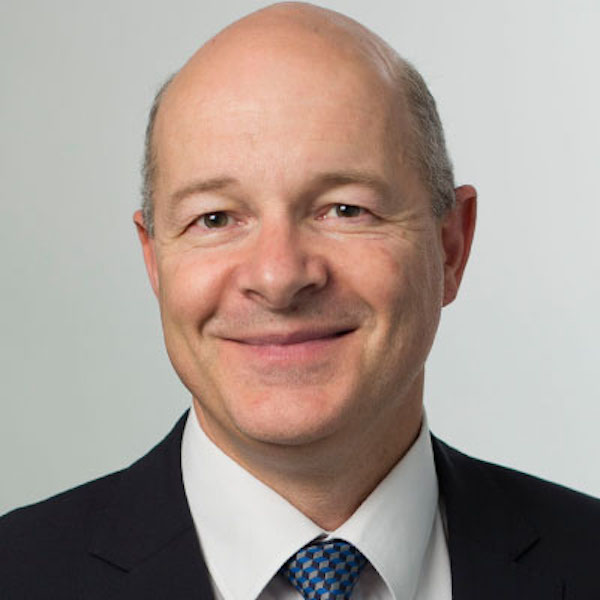 Chief Sustainability and Energy Officer, Solvay
Chief Sustainability and Energy Officer, SolvayPascal Chalvon-Demersay Chief Sustainability and Energy Officer, Solvay
Mr. Pascal Chalvon-Demersay is Chief Sustainability and Energy Officer of Solvay since 2016. After several business management positions with Rhodia in Europe and Brazil, he became CEO of Bluestar Silicones, a global Chinese-owned company. He has returned to Solvay in 2015 as President of Solvay Energy Services before adding CSO responsibilities and merging the organizations. The new entity deploys sustainability into business and operations with a specific focus on accelerating the climate and energy transition of the Group and on fostering circular economy. Pascal is Co-Chair of the Commission Energy-Competitiveness-Climate at MEDEF (French business association) and a Member of the Board of UNIDEN (association of French energy-intensive companies).
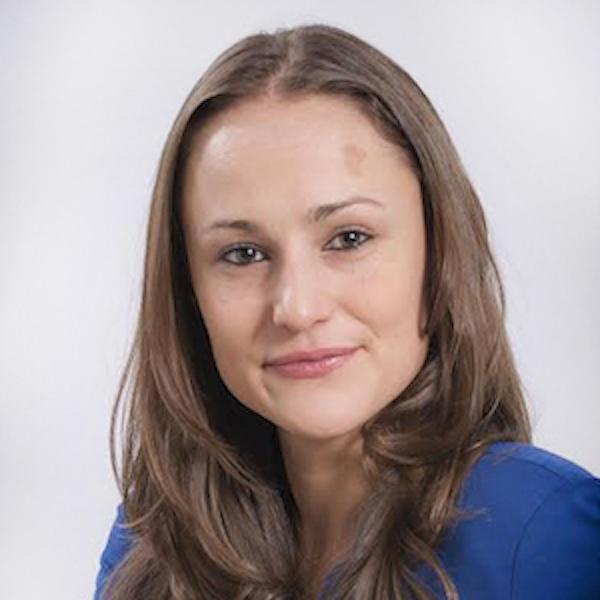 Program Manager, SDSN
Program Manager, SDSNElena Crete Program Manager, SDSN
Elena Crete is a Manager for the SDSN, where she focuses on special initiatives for the Deep Decarbonization Pathways Project (DDPP) and other climate and energy projects for SDSN. Elena serves as the central SDSN lead for the annual Low-Emissions Solutions Conference (LESC), launched at COP22 in Morocco. Part of Elena’s core portfolio is to help bring low-emission solutions to decision makers across networks and sectors to help implement the Paris Agreement. Elena also serves as the Secretariat point person for the Andean Network, Hong Kong Network, Japan Network, Indonesian Network, South Korea Network, and the Southeast Asia Network. Previously, Elena worked as the Operations Manager for SDSN leading the finance and administrative work for the SDSN New York Office. Prior to that she worked in a similar operations capacity for the Center on Globalization and Sustainable Development (CGSD) at Columbia University. Other experience included two years as the Special Assistant to the Executive Director at Connect To Learn, a secondary education initiative created in partnership with the Earth Institute, Ericsson and Millennium Promise. During that time, Elena ran a scholarship program for 732 high schools girls across 10 countries in sub-Saharan Africa within the Millennium Villages Project, working closely with colleagues from Ericsson to install computers and broadband connectivity in the rural schools where the scholarships students were enrolled. Prior to these professional experiences, Elena completed a Masters of Arts in Climatology and a Masters of Science in Sustainability Management from Columbia University, and earned an Earth Science Bachelors Degree from the University of New Hampshire.
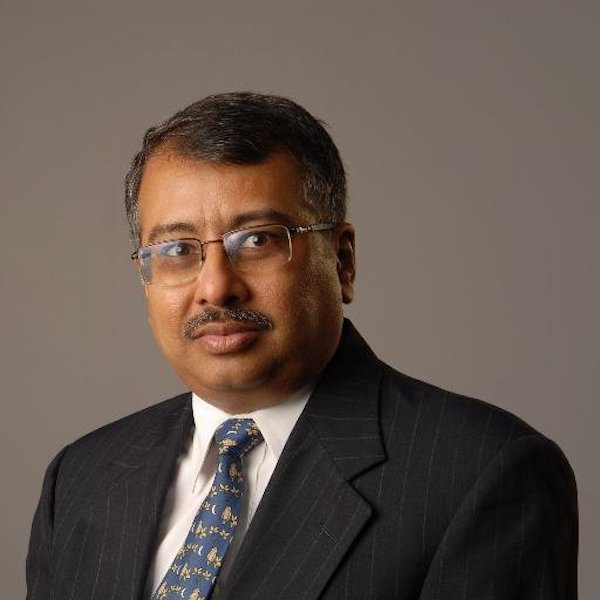 CSO, Mahindra
CSO, MahindraAnirban Ghosh CSO, Mahindra
Anirban Ghosh is a gold medallist engineering graduate who has paved way for a sustainable future.
He is with the USD 17.8bn Mahindra Group, where he is currently Chief Sustainability Officer. This role involves leading the strategy and implementation of the Group’s sustainability drive. Anirban has held other key positions in the Group prior to his current role. He led the business strategy function in M&M’s Farm Equipment business and has also worked in the USA as President of Mahindra USA Inc. Before joining Mahindra Group, Anirban has worked in the Information Technology and Office Automation industries in Sales and Marketing roles. He has also served on the committees of several Industry Associations in India and in the USA, including being a member of the Board of the Association of Equipment Manufacturers, USA. He was recently appointed as Multi-Stakeholder Steering Committee (MSC) for GRI South Asia, SDG Agenda 2030.
- Vice President, Economic & Technology Research Institute, GEIDCO
Han Huang Vice President, Economic & Technology Research Institute, GEIDCO
Han Huang was born in 1974. He graduated from Polytechnic University (now the Engineering School of New York University) and obtained PH.D degree with EE major. Han Huang is a senior engineer. He is currently the vice-president of the Economy and Technology Research Institute at the Global Energy Interconnection Development and Cooperation Organization (GEIDCO). He is a senior member of Institute of Electrical and Electronics Engineers (IEEE), a senior member of Chinese Society for Electrical Engineering (CSEE), a member of Tau Beta Pi, and a special expert of the Corporation of State Grid of China. He is an executive council member at Beijing Western Returned Scholars Association, the deputy- secretary-general of the Thousand Talent Plan Expert Association, and vice-chairman of Association of Returned Overseas Expert at State-owned Companies. He was elected into the "Thousand Talent Plan " in 2011. Han Huang is a registered P.E of NY State, USA.
Han Huang has more than 25 years experience in engaging the research and consultancy in energy strategy planning, and power grid planning. His research focuses include energy sector policies, economics for energy and electric power technologies, energy projects development, climate change issues and environmental issues, as well as market structure and benefits. He has more than 20 years working on financing and design for renewable generation projects and smart grid projects in both U.S.A and China, as well as playing role as NGO for sustainable demonstration projects’ organization at developing countries, within Global Sustainable Electricity Partnership (GSEP).
Han Huang has participated in the drafting of the 12th and 13th Five-Year Development Plan for China’s Energy and Electric Power Industry, several major policies for high proportion clean energy development in China, some transient stability guidelines and system planning rules for systems with high penetration of renewable energy for USA. He has offered consultative expertise to all levels of government such as China’s National Development and Reform Commission, China’s National Energy Administration, U.S.A’s New York Independent System Operator (NYISO), USA’s Northeast Power Coordination Council (NPCC) on energy development policies as well as medium and long term plans.
Han Huang is the leader of China Energy Transition Outlook (2015) and chaired international cooperation projects in smart grid and energy fields, together with the World Bank (WB), the World Resource Institute (WRI), the World Energy Council (WEC), IEA, IRENA, NREL, etc. He has served as expert in joint study conducted between China and other countries such as U.S.A, Canada, Brazil, Germany, etc. In last two years, Han Huang has engaged in global energy interconnection studies covering more than 100 countries and 5 continents, including Asia, South East Asia, North East Asia, Europe, Africa, etc., together with national government and regional unions.
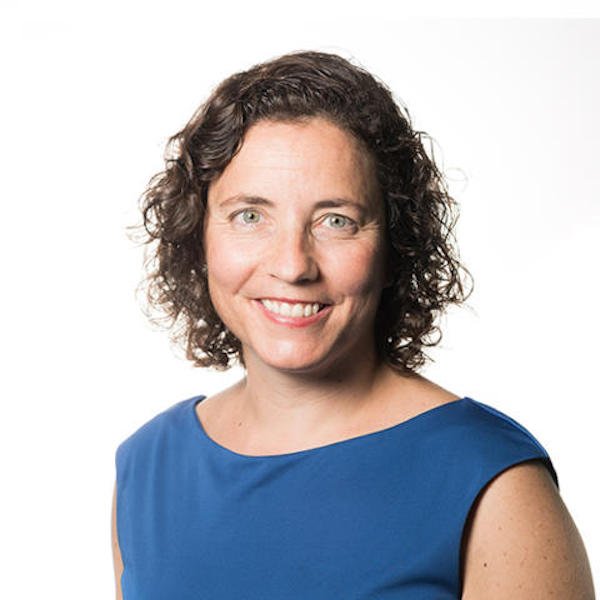 Managing Director, WBCSD
Managing Director, WBCSDMaria Mendiluce Managing Director, WBCSD
Dr. María Mendiluce has over 20 years’ experience in the energy and climate area. Since 2008, María has led the implementation of WBCSD’s Climate and Energy strategy, guiding the work of over 200 member companies to influence the global climate landscape. María managed the development of the Low Carbon Technology Partnerships initiative, one of the flagship projects leading up to the success of COP21. She created WBCSD’s new program on circular economy, and is now developing the new strategy for transport and cities. Prior to joining WBCSD, Maria held different roles at the International Energy Agency (Paris), Iberdrola and the Economic Bureau of the Spanish Prime Minister (Spain). María teaches at the University of Geneva, coaches students and is recognized for her contributions to scientific journals and international conferences. She is married and has three kids.
 Co Founder and Chairman, Solar Impulse
Co Founder and Chairman, Solar ImpulseBertrand Piccard Co Founder and Chairman, Solar Impulse
Born in Lausanne (Switzerland) and descendant of a dynasty of explorers and scientists, who have conquered the heights and the depths of our planet, Bertrand Piccard seems predestined to perpetuate one of the greatest family adventures of the 20th century. Psychiatrist, aeronaut and internationally renowned lecturer, president of the humanitarian foundation “Winds of Hope” and goodwill ambassador for the United Nations, he aspires to combine his family scientific heritage with his commitment to exploring the great adventure of life.
“Adventure is a state of mind in the face of the unknown, a way of conceiving our existence as an experimental field, in which we have to develop our inner resources, climb up the path of our personal evolution and assimilate the ethical and moral values, which we need as our travel companions.”
Pioneer of hanggliding and microlight flying in Europe, European hang-glider acrobatics champion in 1985 and winner of the first transatlantic balloon race (Chrysler Challenge 1992), Bertrand Piccard is also the initiator of the Breitling Orbiter project. His success as pilot in command of the first non-stop round the world balloon flight in 1999 has pushed him to the front of the stage as a “savanturier” (scholar-adventurer, scientist-adventurer).
Following this success, he was decorated with the Legion of Honour, the Olympic Order and the highest distinctions of the International Aeronautical Federation, the National Geographic Society and the Explorer’s Club. Honorary professor and honorary doctor in science and letters, he also received the Grand Prix of l’Académie des Sciences Morales et Politiques.
Thanks to his experiences, he officially launches in 2003 the Solar Impulse project, to take on a new challenge: flying round the world in an airplane propelled uniquely by solar energy, without fuel or pollution, in order to promote the immense potential of renewable energies and their new technologies.
Bertrand Piccard is married to Michèle and has three children.
.jpg) Director, SDSN
Director, SDSNJeffrey Sachs Director, SDSN
Jeffrey D. Sachs is a world-renowned professor of economics, leader in sustainable development, senior UN advisor, bestselling author, and syndicated columnist whose monthly newspaper columns appear in more than 100 countries. He is the co-recipient of the 2015 Blue Planet Prize, the leading global prize for environmental leadership, and many other international awards and honors. He has twice been named among Time magazine’s 100 most influential world leaders. He was called by the New York Times, “probably the most important economist in the world,” and by Time magazine, “the world’s best known economist.” A survey by The Economist in 2011 ranked Professor Sachs as amongst the world’s three most influential living economists of the first decade of the 21st century.
Professor Sachs serves as the Director of the Center for Sustainable Development at Columbia University. He is University Professor at Columbia University, the university’s highest academic rank. During 2002 to 2016 he served as the Director of the Earth Institute. Sachs is Special Advisor to United Nations Secretary-General António Guterres on the Sustainable Development Goals, and previously advised UN Secretary-General Ban Ki-moon on both the Sustainable Development Goals and Millennium Development Goals and UN Secretary-General Kofi Annan on the Millennium Development Goals. He is a Distinguished Fellow of the International Institute of Applied Systems Analysis in Laxenburg, Austria.
Sachs is currently Director of the UN Sustainable Development Solutions Network under the auspices of UN Secretary-General António Guterres, and a Commissioner of the ITU/UNESCO Broadband Commission for Development. He is Chair and Founder of SDG USA, a non-governmental initiative to promote the Sustainable Development Goal concepts in the United States. Sachs is also co-founder and Chief Strategist of Millennium Promise Alliance, and was director of the Millennium Villages Project (2005-2015).
Sachs has authored and edited numerous books, including three New York Times bestsellers: The End of Poverty (2005), Common Wealth: Economics for a Crowded Planet (2008), and The Price of Civilization (2011). His recent books include: To Move the World: JFK’s Quest for Peace (2013), The Age of Sustainable Development (2015) and Building the New American Economy: Smart, Fair & Sustainable (2017).
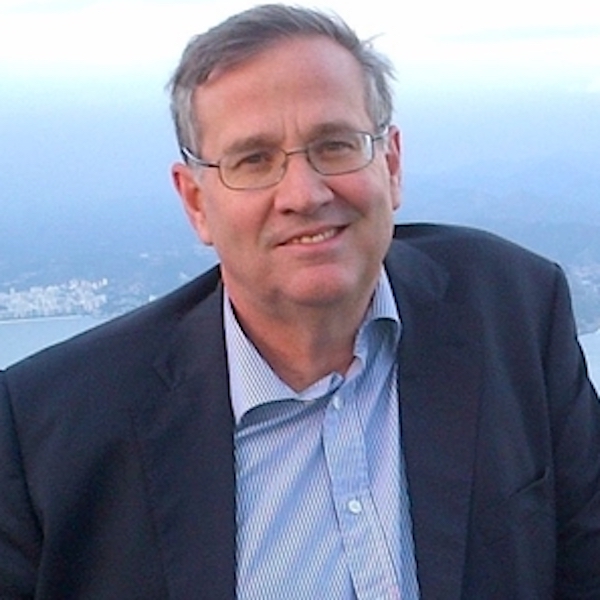 Vice-President of Energy Policies and Climate Change, Iberdrola
Vice-President of Energy Policies and Climate Change, IberdrolaCarlos Sallé Vice-President of Energy Policies and Climate Change, Iberdrola
Mr. Carlos Sallé Alonso serves as Senior Vice President of Policies and Climate Change - Iberdrola at Iberdrola, S.A. and served as its Director of Regulation since joined in September 2001. Mr. Sallé has previously held a number of positions in Comisión del Sistema Eléctrico Nacional (CNSE), the former Spanish independent electricity regulator. He was actively involved in development of the electricity competition model and various associated regulations. He was member of the management team in charge of launching a new electricity market in January 1998, participating in the creation of the Market Operator and being the first Operation Director in the newly created company (OMEL). He went back to CNSE in April 2008, as Director for Unregulated Activities. With the integration of the functions of the former CNSE into the new Comisión Nacional de Energía (CNE), the current Spanish energy regulator, in January 2000, he was appointed Electricity Director, assuming responsibility for all electrical activities.
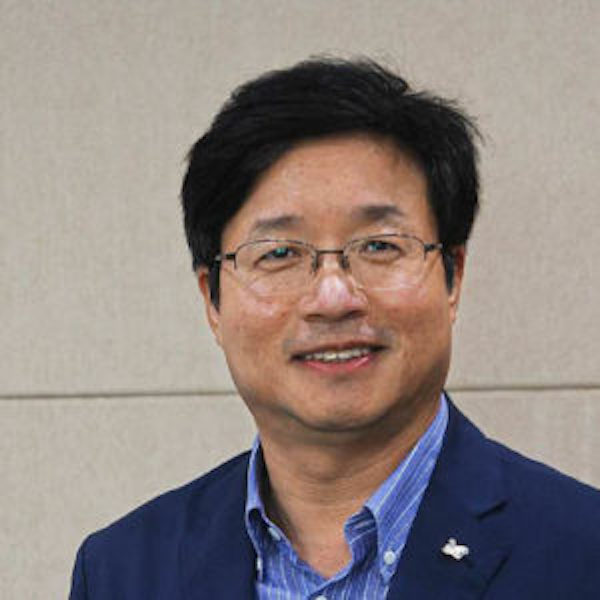 Mayor of Suwon, Republic of Korea, on behalf of ICLEI´s Ecomobility Alliance
Mayor of Suwon, Republic of Korea, on behalf of ICLEI´s Ecomobility AllianceYeom Tae-young Mayor of Suwon, Republic of Korea, on behalf of ICLEI´s Ecomobility Alliance
Taeyoung Yeom received a bachelor’s degree in Agrichemical from Seoul National University.
Mayor Yeom is currently serving as ICLEI Global Executive Committee Member, Co-Chair of Local Decentralization Movement and President of World Toilet Association. Previously he was Secretary to President Roh Moo-hyun for National Agenda, Standing Audit of Korea National Park Service, Secretary General and Chair of Steering Committee of Local Sustainability Alliance of Korea among others.
The 5th and 6th elected Mayor of Suwon, Mr. Yeom is working on various and innovative policies to create a human-oriented, economically vibrant city.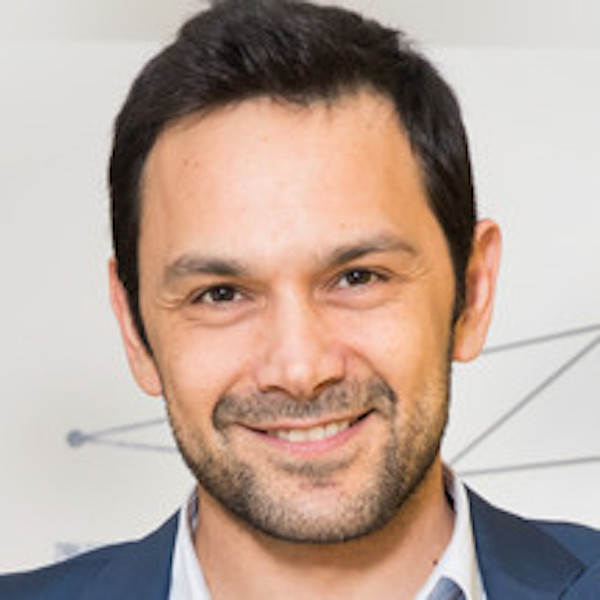 Head of Sustainable Product Development, Enel X
Head of Sustainable Product Development, Enel XNicola Tagliafierro Head of Sustainable Product Development, Enel X
Nicola Tagliafierro is since 2017 Head of Sustainable Product Development in Enel X. In this role, he is responsible for the Global Enel X Sustainability strategies and Acceleration of Solutions Sustainability and Circular Economy Level.
Mr. Tagliafierro graduated in Economics and Business Management in Italy in 2000 with a Master Degree in Energy in 2003. He started his working experience in London for UtiliCorp United Inc in M&A. He joined Eni Group at the end of 2003 working in EniPower upon moving over Eni Gas and Power Division, he was in charge of different roles devoted to Business Development, Origination and Head of Strategic and Panning.
Mr. Tagliafierro joined Enel Group at the end of 2010 working in the Global Trading unit and upon moving over to Enel X, he was in charge of different roles devoted to Business Development, Origination for the European and Worldwide Trading portfolio with focus on Renewable Energy Management opportunities.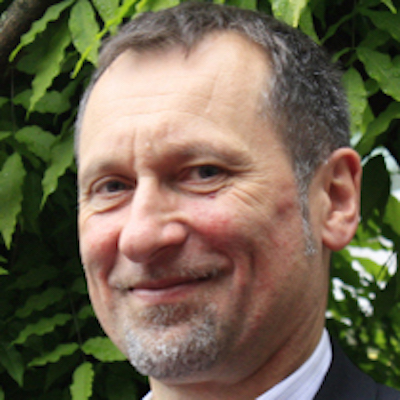 Regional Director for ICLEI Europe
Regional Director for ICLEI EuropeWolfgang Teubner Regional Director for ICLEI Europe
Wolfgang Teubner is the ICLEI Regional Director for Europe and also the Managing Director (CEO) of the ICLEI European Secretariat. He is responsible for the strategic and economic development of ICLEI in Europe.
He has more than 25 years professional experience working with local governments on sustainable urban development, climate adaptation and mitigation, Local Agenda 21, waste management, as well as sustainable urban transport policies. During his career he has been involved in more than 150 European an international projects, including several research activities. In the period between 1994 and 1999 he has coordinated ICLEI‘s European Cities for Climate Protection Campaign and ICLEI‘s European Local Agenda 21 Guidance and Training Programme. From the start in 1994 he has been involved in the European Sustainable Cities and Towns Campaign and has participated in the drafting of the Aalborg Charta as well as the Aalborg Commitments and the 2016 Basque Declaration. Between 1999 and 2004 he has represented the Local Government sector on the European Environment and Health Committee and has been a speaker at many high level international events including the European Council of Ministers.
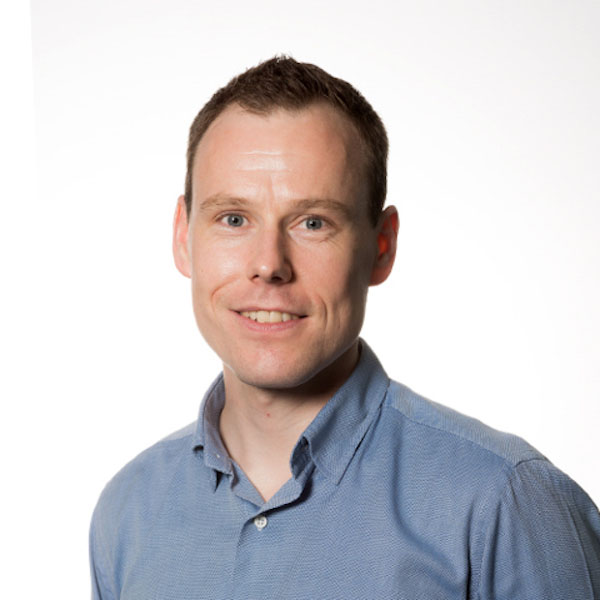 Director, Climate & Energy, WBCSD
Director, Climate & Energy, WBCSDRasmus Valanko Director, Climate & Energy, WBCSD
Rasmus Valanko is the Director for Climate & Energy with the Geneva-based World Business Council for Sustainable Development (WBCSD). In this role, he leads private sector cooperation aiming to create and scale-up business solutions to tackle climate change and leverage key global partnerships. Rasmus has a Masters in Environment, Politics and Globalization from King’s College London. He began his career working for the Ministries of Foreign Affairs and Environment of Finland both in overseas development cooperation and multilateral environmental treaties. Prior to joining the WBCSD, Rasmus worked 7 years for Royal Dutch Shell on global climate change and CO2 policy as well as their alternative energies strategy. Given his background, Rasmus has deep knowledge in the critical technologies required for the transformation of energy supply and demand, with the ability to facilitate and translate between technical and policy worlds.
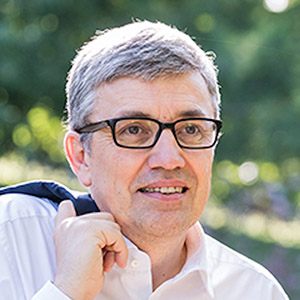 CSO, Schneider Electric
CSO, Schneider ElectricGilles Vermot Desroches CSO, Schneider Electric
After first experiences as president of an NGO and within a Minister cabinet in France, Gilles Vermot Desroches joined Schneider Electric in 1998. His primary mission was to create and develop the Schneider Electric Foundation. Three years later, Gilles took over the role of the new global Sustainable Development department. This new entity defines and deploys the environmental, ethical and social policies of the company, as well as developing the awareness of Schneider Electric employees and other stakeholders to sustainable development issues. Gilles has participated into projects such as the ethical guidelines of the company (2001), the creation of the sustainability performance score card (Planet & Society – 2005) or the access to energy programme (BipBop – 2008). Gilles Vermot Desroches is a member of the ORSE, OSI, also member of the management board of the French Energy Agency ADEME. He is also Vice-President of the Global Compact France and President of the COP Climate Working Group at the MEDEF.
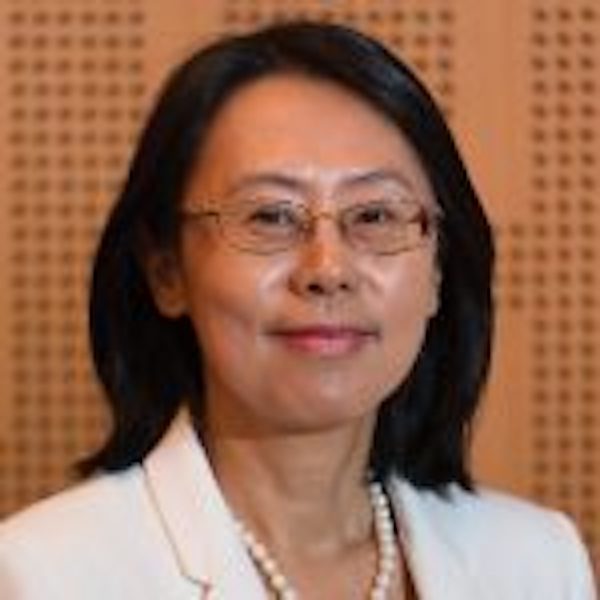 Senior Energy Specialist, The World Bank
Senior Energy Specialist, The World BankXiaodong Wang Senior Energy Specialist, The World Bank
Xiaodong Wang is a Senior Energy Specialist in the Energy Global Practice of the World Bank. Dr. Wang has more than 20 years of operational experience in designing, preparing, and implementing complex and innovative clean energy and climate change
projects in more than 20 middle-income and low-income countries in East Asia and Pacific, Africa, Eastern Europe, South Asia, and Latin American regions through
working at the World Bank, UNDP/GEF, and the UN Foundation. She is now leading clean energy, climate change, and air pollution programs, focusing on
renewable energy and energy efficiency policy advisory services, large-scale complex lending programs, and flagship strategic studies in China, Indonesia, Poland, and Vietnam at the World Bank. She has also led renewable energy and rural electrification
programs in Africa.
Prior to joining the World Bank, Dr. Wang managed the Climate Change and Sustainable Energy Program at the UN Foundation, and worked at the United Nations Development Program Global Environmental Facility responsible for developing renewable energy and energy efficiency projects in Asia. Xiaodong holds a PhD in Energy and Resources from UC Berkeley, and a MS in Environmental Science and Engineering from Tsinghua University.- Leszek DrogosDirector of Infrastructure Department, City of Warsaw, Poland